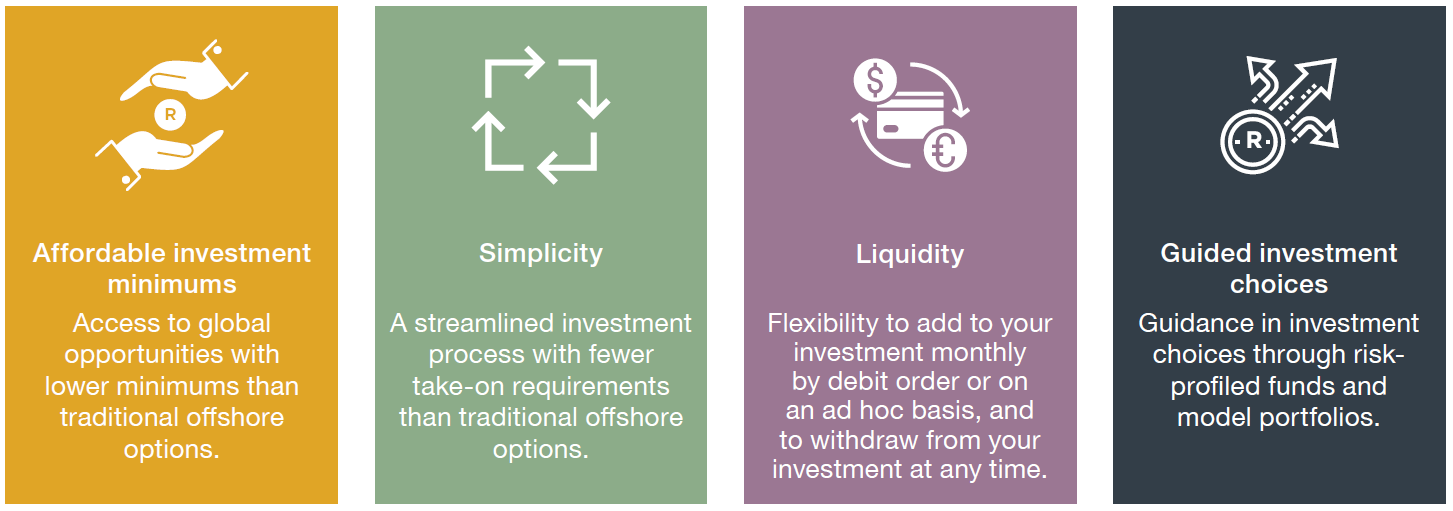Checking out Exactly How Spending Off Coast Functions: A Comprehensive Overview
Investing offshore presents an intricate landscape of possibilities and obstacles. Recognizing the different sorts of overseas accounts is important for any individual considering this route. The advantages, including enhanced personal privacy and asset protection, are substantial. Lawful and tax ramifications call for careful focus. As capitalists look for to optimize their profiles, the steps to establish a sensible offshore investment strategy end up being essential. What are the vital aspects that must browse to be successful in this endeavor?
Comprehending Offshore Accounts and Their Kinds
What drives people and businesses to consider offshore accounts? The attraction of monetary privacy, property defense, and possible tax obligation advantages typically brings in the interest of those looking for to handle their wide range extra purposefully. Offshore accounts, commonly developed in international territories, been available in different types. Individual accounts cater to specific demands, using services like financial savings, investment, or retirement planning. Company accounts, on the other hand, serve firms looking to assist in international purchases, enhance personal privacy, or optimize tax obligation responsibilities. Count on accounts provide an extra layer of protection, enabling people to protect their possessions for future recipients. Each kind of overseas account provides one-of-a-kind attributes, frequently affected by the governing atmosphere of the host country. Comprehending these distinctions is vital for people and businesses, as the selection of account type can significantly affect their economic approaches and conformity with worldwide laws.
Benefits of Offshore Spending
While numerous capitalists seek chances to diversify their profiles, offshore spending presents distinctive advantages that can improve monetary growth and protection. One remarkable advantage is the capacity for property protection. Offshore accounts can protect investments from political instability or financial declines in the capitalist's home country. Furthermore, offshore financial investments frequently supply access to worldwide markets, permitting capitalists to use emerging economic situations and sectors that may not be offered domestically.Another considerable benefit is tax obligation effectiveness. Several overseas jurisdictions use beneficial tax regimens, which can reduce tax obligation obligations and boost total returns. In addition, overseas investing can enhance privacy, as specific jurisdictions implement stringent discretion laws.Lastly, offshore accounts can help with wide range administration strategies by offering a bigger array of investment options, including different possessions such as actual estate and products. Collectively, these benefits make offshore spending an appealing option for those wanting to enhance their financial profiles.

Regulatory and legal Considerations
Guiding through the regulatory and lawful landscape of offshore investing needs cautious attention and understanding. Investing Off Shore. Capitalists should navigate a complex internet of regulations that vary substantially from one territory to an additional. Conformity with neighborhood policies is crucial; failure to do so can cause severe fines, including penalties and imprisonment. Furthermore, knowing the legal frameworks governing international financial investments is vital for ensuring the defense of assets and keeping functional legitimacy.Key factors to consider consist of recognizing the regulatory demands for establishing offshore entities, such as companies or trust funds, and sticking to anti-money laundering (AML) and know-your-customer (KYC) guidelines. Investors need to likewise recognize reporting obligations in their home country, as lots of nations need disclosure of offshore holdings. Involving with lawyers experienced in overseas investment can supply invaluable assistance, aiding financiers to reduce risks and safe Website and secure compliance with applicable legislations and regulations while maximizing their financial investment possibility

Tax Ramifications of Offshore Investments
Understanding the governing and lawful considerations of offshore investing normally causes an exam of the tax implications associated with these investments. Offshore financial investments can use significant tax obligation advantages, consisting of decreased tax prices and the potential for tax deferral. Nonetheless, capitalists need to browse complex tax obligation guidelines in their home nations, as several territories need taxpayers to report foreign revenue and assets.For united state citizens, the Foreign Account Tax Conformity Act (FATCA) mandates the coverage of offshore accounts, while other countries have comparable requirements. Failure to abide can cause serious charges. Furthermore, certain offshore funds may be subject to distinct tax therapies, such as Passive Foreign Investment Company (PFIC) policies, complicating investment strategies.Investors must take into consideration consulting tax specialists to comprehend effects certain to their circumstances and guarantee compliance with both worldwide and residential tax regulations, ultimately taking full advantage of the benefits of their overseas financial investments while decreasing threats.
Actions to Get Going With Offshore Investing
Many capitalists seeking to expand their portfolios turn to overseas investing as a feasible option. To start, one need to perform comprehensive research study on possible offshore territories, considering factors such as governing environment, taxes, and investment opportunities. Investing Off Shore. After choosing a suitable place, financiers need to establish an overseas account, which generally requires documents showing identification and resource of funds.Next, investors commonly involve with a financial expert or an overseas investment firm accustomed to local regulations and market characteristics. This collaboration can assist in crafting a tailored financial investment technique that straightens with specific goals and risk tolerance.Once the strategy is in location, capitalists can continue to select specific assets or funds for financial investment, ensuring they evaluate efficiency and runs the risk of on a regular basis. Finally, maintaining conformity with both local and home nation laws is crucial for why not try these out successful offshore investing, requiring ongoing diligence and potentially routine consultations with legal specialists
Frequently Asked Concerns
How Do I Select the Right Offshore Jurisdiction?
Selecting the ideal overseas territory includes reviewing variables such as governing setting, tax obligation advantages, political stability, and ease of operating. Researching each choice completely guarantees enlightened choices that line up with private investment objectives and run the risk of tolerance.
What Kinds Of Assets Can I Hold Offshore?

Exist Dangers Connected With Offshore Investing?
The risks connected with overseas investing consist of legal intricacies, governing modifications, currency fluctuations, and prospective political instability. Financiers have to very carefully review these elements to reduce dangers and warranty conformity with worldwide laws and laws.
Exactly How Can I Accessibility My Offshore Finances?
To gain he said access to offshore funds, people usually require to call their banks, provide required identification and paperwork, and adhere to established procedures for fund transfers, making sure compliance with both global and regional policies controling overseas investments.
What Prevail Misconceptions Concerning Offshore Accounts?
Common mistaken beliefs about overseas accounts include ideas that they are entirely for tax evasion, lack of law, or only accessible to the affluent. In truth, they can be genuine financial devices for varied individuals. Furthermore, overseas investments frequently offer accessibility to worldwide markets, allowing financiers to tap into emerging economic climates and markets that may not be available domestically.Another considerable advantage is tax obligation efficiency. Offshore investing can boost privacy, as specific territories implement strict discretion laws.Lastly, offshore accounts can help with wide range management techniques by supplying a larger array of investment options, including alternate assets such as genuine estate and products. Recognizing the lawful and regulatory considerations of offshore investing naturally leads to an assessment of the tax obligation ramifications linked with these investments. Offshore financial investments can provide substantial tax obligation benefits, consisting of lowered tax obligation prices and the capacity for tax deferral. After selecting a suitable place, investors ought to establish an offshore account, which normally needs paperwork verifying identification and resource of funds.Next, financiers frequently engage with a financial consultant or an overseas financial investment firm acquainted with regional regulations and market dynamics.